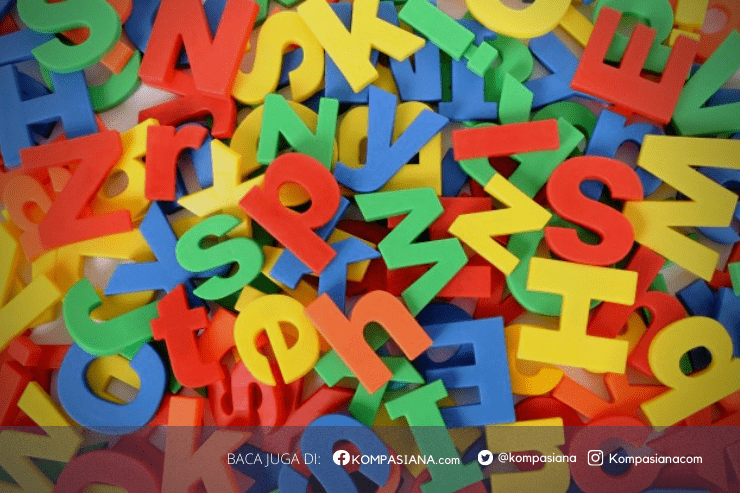The purpose of this article is to discuss how informal language, shaped by texting and digital communication, influences academic writing. Many students find it challenging to shift to formal writing styles, which are crucial for clear, professional, and credible communication. This article focuses on the importance of formal language in helping writers present their ideas effectively and meet academic standards. It also provides strategies to help students overcome the habits of informal writing, refine their skills, and succeed in both academic and professional environments.
The Essential Role of Grammar in Academic Writing
Grammar plays a crucial role in academic writing because it ensures that ideas are communicated clearly and effectively. Without proper grammar, even the best ideas might lose their impact or be misunderstood. Poorly constructed sentences or grammatical inaccuracies can create the perception that the research itself may lack thoroughness. For academic audiences, readers might doubt the quality of the work, even if the ideas are strong. Furthermore, strong grammar enhances the overall readability of a paper, which is crucial for engaging readers in academic settings. Academic writing often deals with dense material, requiring readers to process complex theories or detailed evidence. Poor grammar, such as misplaced modifiers or inconsistent verb tenses, can disrupt this process, forcing readers to re-read sentences or guess at their meaning.
Errors such as misplaced modifiers, which can change the intended meaning of a sentence, or inconsistent verb tenses, which can make timelines unclear, disrupt the logical flow of ideas. For instance, a sentence such as "The researcher explained the results that were found in the experiment yesterday in detail" could confuse the reader due to unclear placement of "yesterday." Did the experiment occur yesterday, or was the explanation provided yesterday? Such ambiguities require readers to pause, re-read, and infer meaning, which can be frustrating and time-consuming. In academic settings, readers may lose focus on the content as they attempt to untangle poorly constructed sentences. This not only affects their comprehension but may also lead them to form a negative perception of the writer's work.
Grammar is not just a technical requirement—When writers take the time to create sentences that are clear and grammatically correct, it shows that they care about their audience and want to present their ideas in the best way possible. Paying attention to grammar also shows that the writer is serious and professional, which is especially important in academic and professional settings where trust and credibility matter a lot. Using grammar correctly helps readers focus on the writer’s ideas instead of getting distracted by mistakes. Clear and well-structured sentences guide readers through complex topics, making it easier to understand. On the other hand, grammar errors can confuse readers or make the writing seem less polished. In academic work, where ideas often involve detailed arguments or evidence, proper grammar ensures that the writer’s message is clear and effective, helping the audience fully grasp their points.
There are four highlighted types of stance markers in academic writing: self-mentions, attitude markers, boosters, and hedges. These tools help writers express their feelings, confidence, or caution about the topic they are discussing. Stance markers such as self-mentions, attitude markers, boosters, and hedges play an important role in academic writing. These tools allow writers to express their position, show confidence, or acknowledge uncertainty, making their arguments clearer and more persuasive. These tools help writers share their ideas and guide readers through their arguments. Self-mentions, such as "I argue" or "we suggest," let writers show their presence clearly in the text. Attitude markers, such as "surprisingly" or "fortunately," express the writer's feelings or opinions about the topic. Boosters, for instance "clearly" or "definitely," show confidence and make the argument sound stronger. On the other hand, hedges, such as "might" or "possibly," show uncertainty and allow room for other ideas. These markers help writers find a middle ground between being confident and careful, making their work easier to understand and more convincing.
The Influence of Informal Language on Academic Writing Standards
Informal language, particularly from texting and digital communication platforms, has a significant impact on the quality of academic writing. This influence challenges students to balance the informal styles of everyday communication with the formal requirements of scholarly work. Formal writing uses proper grammar, clear sentences, and precise words. These elements are important because they make complex ideas easier to follow. In academic work, writers often explain detailed arguments or use evidence to support their ideas. If informal language or slang is used, the meaning can become unclear or confusing. For example, a casual phrase like "kinda works" does not communicate as much confidence as "this approach is effective." By using formal writing, writers ensure that their ideas are clear and leave no room for misunderstanding.
However, many students still find it difficult to adapt to the formal writing style required in academic settings because of their habitual use of informal language. This is especially common among students who frequently rely on texting and digital platforms to communicate, where informal language is normalized. For instance, expressions such as abbreviations ("u" instead of "you") or informal grammar such as dropping pronouns ("gonna" instead of "I am going to") become second nature. Over time, these habits become so automatic that they unintentionally seep into academic writing. These habits often carry over into academic writing, making it hard for students to adjust their tone and style to meet formal requirements. The challenge is further compounded when students are unaware of the differences between casual and formal communication, resulting in academic papers that lack the professionalism expected in scholarly work. In informal contexts, the goal is often quick and effortless communication, where rules of grammar, punctuation, and tone are less important. In contrast, academic writing demands precision, structure, and a professional tone to convey ideas clearly and credibly. When students fail to recognize these differences, they may produce academic work that includes casual phrases, unstructured sentences, or even slang, which can make their papers appear unpolished and unprofessional.
Academic writing is often read by people from different countries and cultures. Formal writing creates a universal style that most readers can understand. Informal expressions, such as regional slang or casual phrases, may confuse readers who are unfamiliar with them. For instance, phrases such as "that’s lit" or "on point" might make sense to some people but seem confusing or unprofessional to others. By sticking to formal language, writers make sure their work is accessible to everyone, no matter where they are from. This is especially important in academic and professional settings, where the goal is to communicate ideas clearly to a wide audience.
Follow Instagram @kompasianacom juga Tiktok @kompasiana biar nggak ketinggalan event seru komunitas dan tips dapat cuan dari Kompasiana. Baca juga cerita inspiratif langsung dari smartphone kamu dengan bergabung di WhatsApp Channel Kompasiana di SINI







